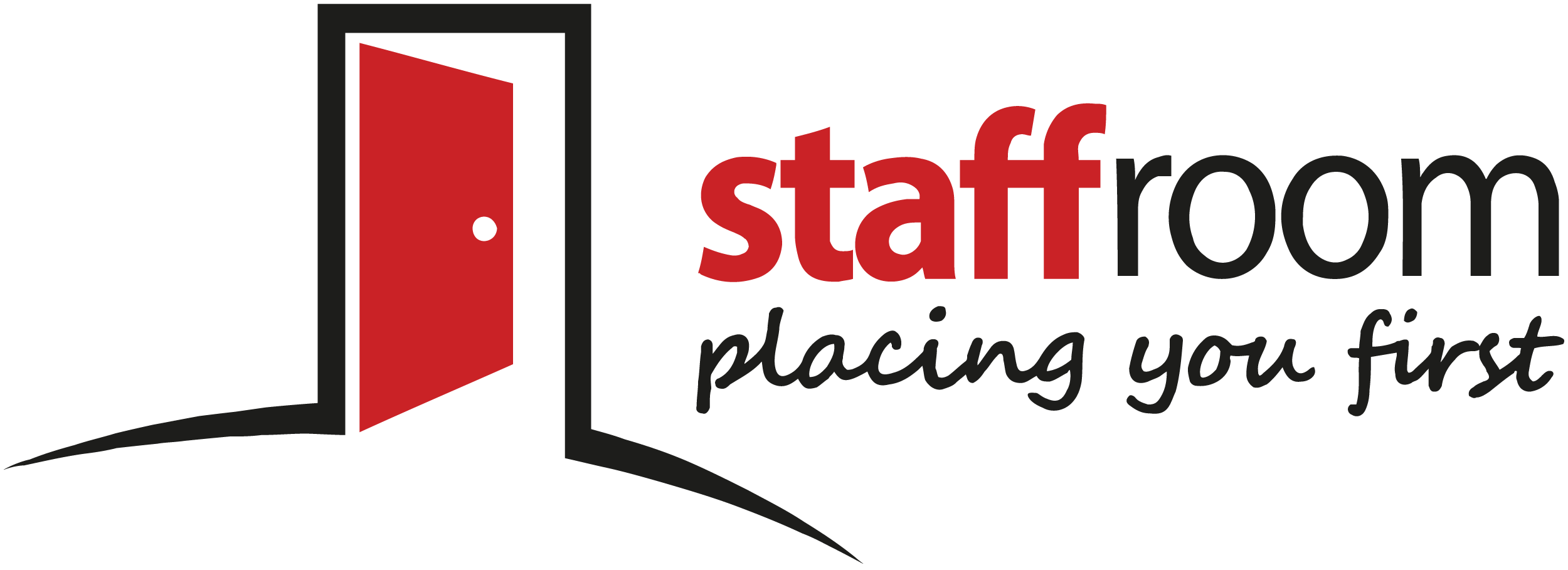Teacher Tips – A guide to inspiring others in Education - Dyslexia
This is a topic close to my heart, yes, I have a statement!
I was diagnosed with Dyslexia and Dyspraxia in my third year of University. Because I’m smart, I was able to develop coping strategies when I found approaches to learning difficult therefore was able to mask my disabilities. P.S. I didn’t call myself smart, the Educational psychologist did!
School was a struggle, always working hard, but my best never seemed good enough. I would complete course work or finish exams feeling super confident, “Yes I’ve done a great job, answered all the questions and worked hard”. Reality being, I had only just passed or got an ‘average’ mark (understandably everyone’s interpretation of ‘average’ is different. This then opens your mind to questions like, “What’s wrong with me?” or “Where did I go wrong?”. Plus, I was always too embarrassed to ask a teacher.
I vividly remember my History A-level teacher telling me, “You’ll never get an A”. I made it my personal ambition to get that A, and I did! But wow, did it exhaust me.
Anyway, my whole experience of school, exams, and higher education left me feeling deflated and somewhat insecure about my own abilities and intelligence. We joke about it now, but I was often referred as the ‘creative’ one in my family because I wasn’t achieving brilliant results like my siblings. I didn’t learn and understand things in the same way as them, or anyone else who doesn’t have dyslexia.
You can only imagine, what a relief I felt in my third year of a degree to be diagnosed… it was like a light switch had just been turned on! Everything made sense.
Now I still dread things like form filling. There are things I would love to be able to do naturally, like read a book! I am jealous of people being able to pick a book and read it for hours, little things that people take for granted. I struggle to read sentences with accuracy and fluency, the words blur and jump from line to line. Eventually my eyes get so overtired, that nine times out of ten I will have woken up to book in my face!
We can laugh, as it is funny. But it is also serious. Even as an adult I still struggle to blend and read words phonetically.
Dyslexia doesn’t inhibit my life in anyway, I just work a little harder for everything I achieve. Which in itself can be very rewarding.
So, the point I’m trying to make is that Dyslexia can often be a hidden disability, please don’t assume that some of your pupils are just ‘falling behind’ if they don’t characterise some of the more obvious traits.
This learning journey developed my open mindedness, patience and empathy towards others which meant I had the transferable skills needed in Special Education.
Some of the highest achieving people Dyslexic, it would surprise you!
Tom Cruise Will Smith Kiera Knightly
Albert Einstein Jenifer Aniston Muhammad Ali
Dyslexia
So, what is Dyslexia?
“A general term for disorders that involve difficulty in learning to read or interpret words, letters, and other symbols, but that do not affect general intelligence”
NHS list symptoms of Dyslexia their website, however, google is not a professional.
Never should you type any symptoms into google and hit the enter button. For the sake of your own mental health and well being! If you have any concerns always speak to a professional.
One of the routes for diagnosing any disability is being assessed by an Educational Psychologist, they can carry out a variety of cognitive and practical tests. Results would place you within a percentile of any disability, in order to tell where an individual is on the spectrum. And that spectrum is huge!
When diagnosing Dyslexia, they may test your pupil on;
Reading and writing abilities;
Language development and vocabulary;
Logical reasoning;
Memory skills;
The speed they can process visual and auditory (sound) information;
Organisational skills;
Approaches to learning.
Traits of Dyslexia
I am using the NHS website as today’s guideline, because I wanted provide you with a professional resource plus it was last updated in 2018 so it’s recent.
Please research Dyslexia further yourself, especially if it’s a topic you are interested in.
Important to remember, you do not need to have all the below traits to be dyslexic!
Pre-school children
In some cases, it's possible to detect symptoms of Dyslexia before a child starts school.
Symptoms can include;
Delayed speech development compared with other children of the same age (although this can have many different causes);
Speech problems, such as not being able to pronounce long words properly and "jumbling" up phrases (for example, saying "hecilopter" instead of "helicopter", or "beddy tear" instead of "teddy bear");
Problems expressing themselves using spoken language, such as being unable to remember the right word to use, or putting sentences together incorrectly;
Little understanding or appreciation of rhyming words, such as "the cat sat on the mat", or nursery rhymes;
Difficulty with, or little interest in, learning letters of the alphabet.
Schoolchildren
Symptoms of Dyslexia usually become more obvious when children start school and begin to focus more on learning how to read and write.
Symptoms of Dyslexia in children aged 5 to 12 include;
Problems learning the names and sounds of letters;
Spelling that's unpredictable and inconsistent;
Putting letters and figures the wrong way round (such as writing "6" instead of "9", or "b" instead of "d");
Confusing the order of letters in words;
Reading slowly or making errors when reading aloud;
Visual disturbances when reading (for example, a child may describe letters and words as seeming to move around or appear blurred);
Answering questions well orally, but having difficulty writing the answer down;
Difficulty carrying out a sequence of directions;
Struggling to learn sequences, such as days of the week or the alphabet;
Slow writing speed;
Poor handwriting;
Problems copying written language and taking longer than normal to complete written work;
Poor phonological awareness and word attack skills.
Phonological awareness
Phonological awareness is the ability to recognise that words are made up of smaller units of sound (phonemes) and that changing and manipulating phonemes can create new words and meanings.
A child with poor phonological awareness may not be able to correctly answer these questions;
What sounds do you think make up the word "hot", and are these different from the sounds that make up the word "hat"?
What word would you have if you changed the "p" sound in "pot" to an "h" sound?
How many words can you think of that rhyme with the word "cat"?
Word attack skills
Young children with Dyslexia can also have problems with word attack skills.
This is the ability to make sense of unfamiliar words by looking for smaller words or collections of letters that a child has previously learnt.
For example, a child with good word attack skills may read the word "sunbathing" for the first time and gain a sense of the meaning of the word by breaking it down into "sun", "bath", and "ing".
Teenagers and adults
As well as the problems mentioned above, the symptoms of Dyslexia in older children and adults can include;
Poorly organised written work that lacks expression (for example, even though they may be very knowledgeable about a certain subject, they may have problems expressing that knowledge in writing);
Difficulty planning and writing essays, letters or reports;
Difficulties revising for examinations;
Trying to avoid reading and writing whenever possible;
Difficulty taking notes or copying;
Poor spelling;
Struggling to remember things such as a PIN or telephone number;
Struggling to meet deadlines.
Resources
There are many ways to help children with Dyslexia, my experience in SEN made me realise you can use resources like PECS (Picture Exchange Communication System). The primary use is as a communication tool, but it could easily transfer over and support someone with Dyslexia.
The most important tool that supports my Dyslexia is time. I have always required extra time to complete work based tasks, essays and exams. Because I process things slower than someone who does not have Dyslexia. I’m a visual learner, so rather verbal instructions or to be shown how to do something practically. I tend to find if you show me how to do something once, I will pick it up. But if you give me written instructions, well that just looks like a flat pack furniture instructions – difficult to understand and often leading to a very frustrated Bethan!
With pupils in school, it’s about developing different approaches to teaching. Make it fun, and practical. Make sure you get parents and SENCO’s/ALENCO’s involved. Create targets together, and make sure these are regularly being delivered for consistency. Send targets home, so that everyone is doing the same thing. If you are creating targets, for individual education plans (IEPs). Make sure you monitor them, record when they have been achieved, for your own planning and self-reflection and to celebrate pupil achievements.
Incorporate technology into learning, there are many ‘read aloud’ software packages available to be installed on PCs/Laptops. They play back whatever you have written on a PC/Laptop, so pupils can check their grammar and punctuation. Enlarge fonts and play around with ones that pupils find easier to read when making work sheets. Print worksheets on paper that is off white, as the brightness of the white paper often strains eyes! Making words jump around the page, blur and even making pupils sleepy!
Record your instructions on technology (Dictaphone, IPADs etc), this allows pupils to replay what you’ve said. It is a great time saver for you, but also creates pupil independence and their own understanding of tasks.
I only needed to type ‘Dyslexia’ into Pinterest, and I found 932 free strategies, products, resources and advice available to help support you in the classroom!
Finally, for some continued research, I have inserted website links to the British Dyslexia Association and Dyslexia in children.
Have your say
How useful was this blog?
Do you have dyslexia or know someone that does?
If you are seeking part time or temporary employment or are working in Education and you would like just have a chat about this blog please feel free to contact me via email or call me on 02920 496646.
References:







